Dubai is a global city renowned for its luxury, modernity, and unique cultural heritage. While its glitz and glamour attract millions of visitors annually, Dubai also has a legal and cultural framework that may be unfamiliar to Western tourists. Understanding these laws ensures a respectful and enjoyable trip while avoiding any legal pitfalls. Take a deeper dive into 12 key rules and laws that every visitor should know before traveling to Dubai.
1. Dress modestly in public
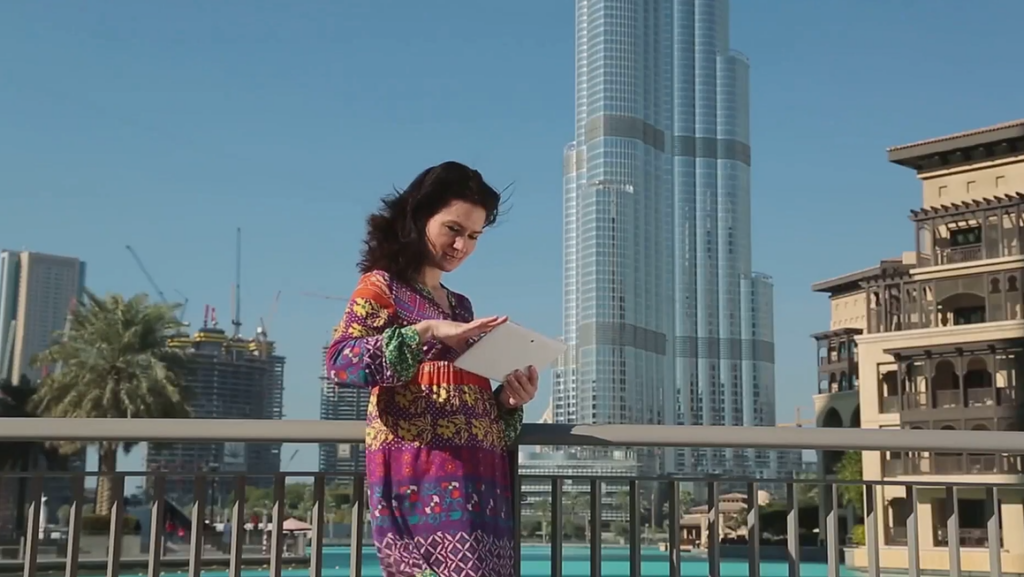
Dubai is more progressive than other cities in the UAE, but modest clothing is still expected in public areas. Women should avoid wearing clothing that is too tight, short, transparent or too revealing in any form. For example, shorts, sleeveless tops, and low-cut dresses may be frowned upon in malls or traditional markets. Men should avoid walking shirtless outside beach areas. You can´t go wrong, when your shoulders and knees are covered. Both, women and men should avoid wearing clothing that displays offensive pictures or slogans. Both genders should dress conservatively when visiting mosques or official governmental buildings. When visiting a mosque, women will be asked to respect Muslim traditions by wearing an abaya and covering their heads. Often, these are provided at the mosque. Any form of nudity, including topless sunbathing is strictly forbidden.
However, Dubai's private resorts, beaches, and clubs are more relaxed. Swimsuits and bikinis are acceptable in those areas but should not be worn in public spaces outside of the venue.
- Tip: Carry a light scarf or shawl for covering shoulders when visiting traditional areas or entering religious sites.
2. Public Displays of Affection are Limited
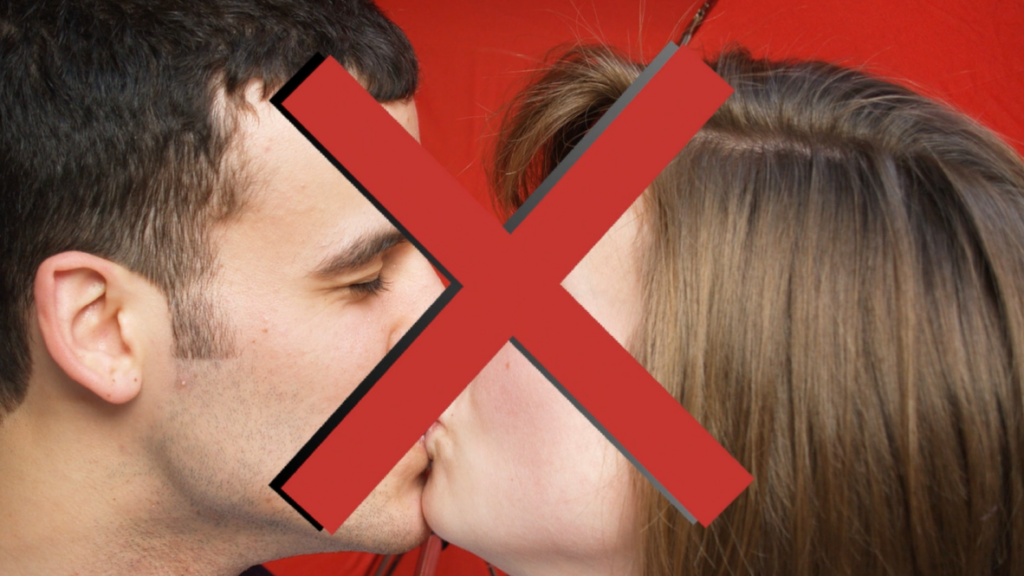
Dubai has strict public decency laws, and what might seem like harmless affection in the West can be considered inappropriate here. Married couples holding hands is usually fine, but hugging, kissing, or prolonged physical contact in public can lead to warnings, fines, or even arrest.
- Cultural Note: Dubai places high importance on respecting privacy and modesty in public spaces, which is why such rules are in place.
3. Alcohol Consumption is Restricted
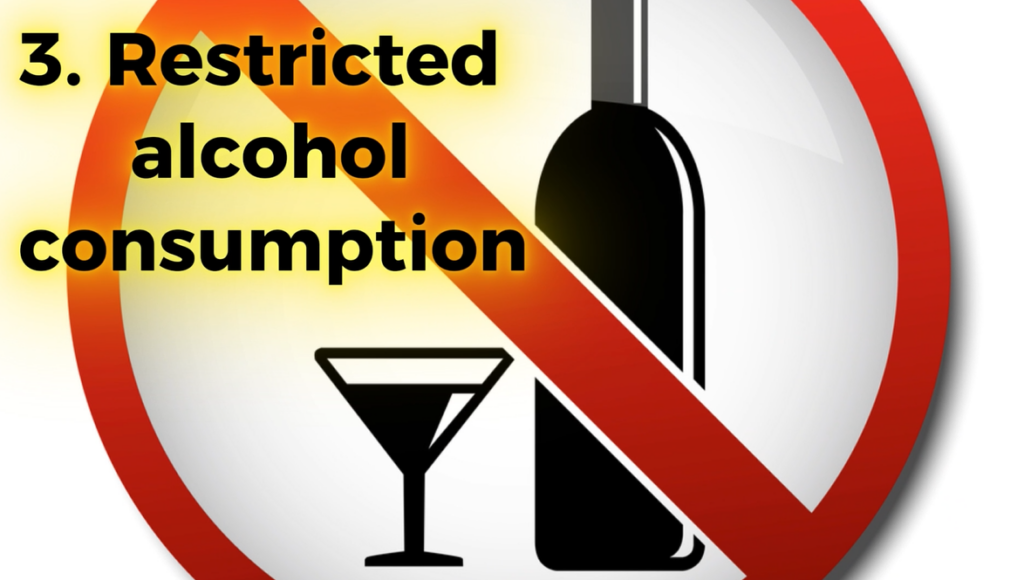
While Dubai is one of the more lenient emirates regarding alcohol, strict laws still govern its sale and consumption. Alcohol is only available in licensed venues such as hotel bars, restaurants, and private clubs. Drinking in public spaces, including parks, streets, or beaches, is strictly prohibited.
Moreover, public intoxication is illegal and can lead to hefty fines or jail time. Tourists should also be aware that carrying alcohol purchased from duty-free shops must comply with the UAE's regulations, and crossing into another emirate with alcohol is not allowed.
The legal drinking age is 21.
4. No Drugs - Zero Tolerance

Dubai enforces some of the world’s strictest drug laws. Even small quantities or traces of banned substances can lead to severe penalties, including imprisonment or deportation. This includes certain medications that are legal in other countries. Tourists are advised to check the UAE’s list of prohibited substances and carry a doctor’s prescription for any required medications.
- Tip: Double-check your travel essentials and leave behind any items that could raise questions, such as CBD oil or poppy seeds, which are also banned.
5. Photography Etiquette

Photography laws in Dubai are rooted in privacy concerns. Taking pictures of people without their consent, especially women and families, is strictly prohibited and can lead to legal consequences. Tourists should also avoid photographing government buildings, military facilities, or airports, as this is considered a security breach. So please always ask permission before taking photos of locals, and stick to photographing landmarks and tourist attractions.
6. Avoid Offensive Gestures and Language
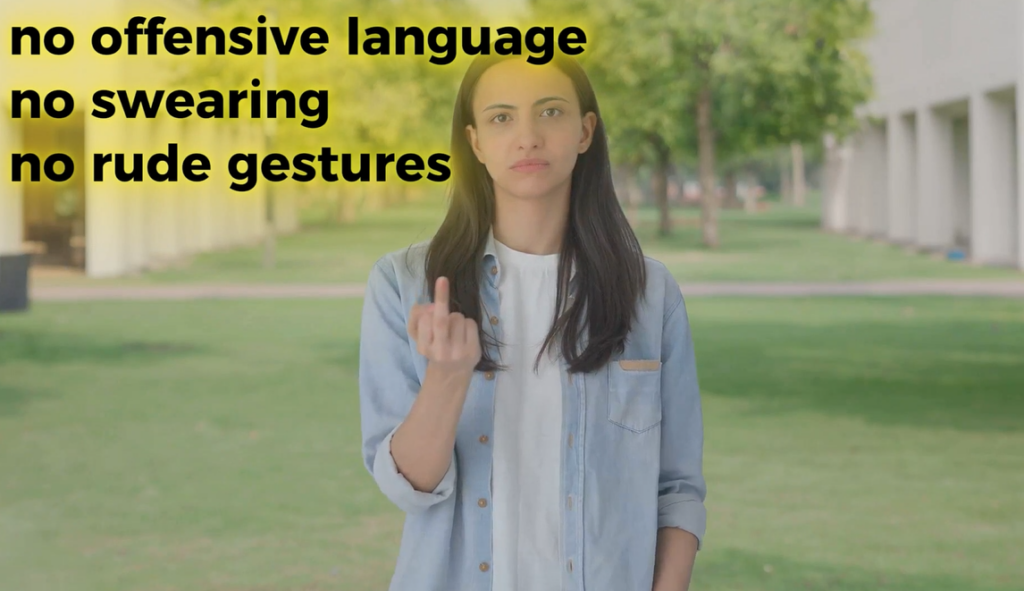
Using offensive language, swearing, or making rude hand gestures is considered a serious offense in Dubai, whether in person or online. Even casual complaints or heated arguments can escalate into legal trouble if the other party files a complaint.
As a tourist you should be aware that a “thumbs-up” or our “ok-sign” formed with your thumb and index-finger is NOT OK in Dubai.
- Cultural Note: This strictness stems from the UAE's emphasis on politeness and respect in social interactions.
7. Same-sex Relationships are Private

While Dubai welcomes tourists from all backgrounds, its laws do not recognize same-sex relationships. Public displays of affection by same-sex couples can lead to unwanted attention, complaints, fines or imprisonment. Discretion is advised to avoid any uncomfortable situations.
8. Ramadan Rules

During the holy month of Ramadan, Muslims fast from sunrise to sunset. Tourists should respect this practice by refraining from eating, drinking, or smoking in public during daylight hours. Many restaurants remain closed during the day but may offer takeaway or operate in screened-off areas. So you should check restaurant timings in advance and eat discreetly in designated areas.
9. Be Cautious with Social Media

Social media posts that violate privacy, defame individuals, or insult religion can lead to legal consequences. For example, posting pictures of someone without their permission or sharing offensive memes is considered a violation of UAE laws. So please make sure your posts are respectful and avoid discussing sensitive topics such as politics or religion.
10. Legal Consequences for Unpaid Bills

Dubai takes financial obligations seriously. Leaving unpaid hotel bills, failing to pay fines, or not settling credit card charges can result in being detained at the airport. This is because unpaid debts are treated as legal matters rather than civil issues. The same is true for unpaid taxis and similar services. So before leaving Dubai, double-check that all payments and bills are cleared.
11. Sharing a Hotel Room as an Unmarried Couple

The regulations regarding sharing a hotel room as unmarried couple were relaxed.
Now, you can legally share a hotel room as an unmarried couple in the UAE. However, it is advised to be mindful of cultural sensitivities and to check hotel policies before and during your stay.
12. Smoking or Vaping
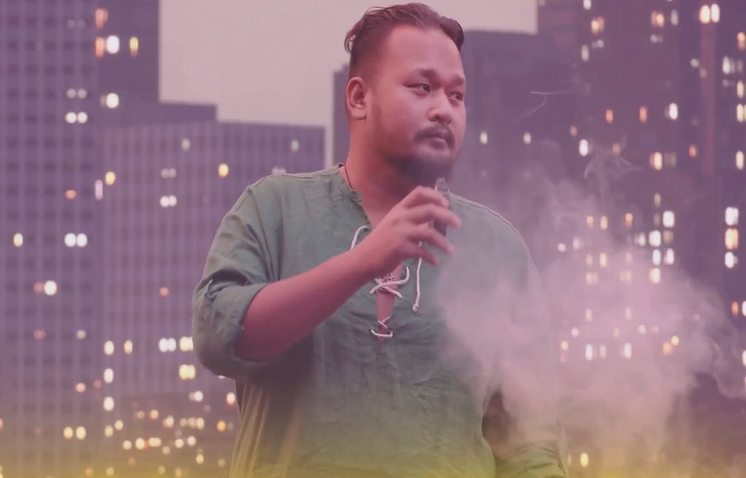
The UAE has strict laws regarding smoking cigarettes and vaping devices. According to Federal Law No. 15 of 2009 on Combating Tobacco, it is prohibited to smoke in enclosed public areas as well as in public transportation vehicles. Smoking is also banned in houses of worship, educational institutions, health facilities, and sports facilities.
Additionally, smoking in private vehicles is prohibited if a child under the age of 12 is present. Using vending machines for selling tobacco products is also banned.
Violation of these laws can result in significant fines and, in some cases, imprisonment.
In public you can only smoke or vape in special smoking areas.
Summary :
Dubai’s charm lies in its unique blend of modernity and tradition. While its rules and laws may seem strict compared to Western countries, they are rooted in respect for local culture and public order. By understanding and respecting these regulations, tourists can enjoy a safe and memorable trip to this vibrant city.
And in the end: Don´t we all wish, all tourist would try to adapt to local rules and traditions to their best of their abilities?
So we should try to be informed and respectful travelers wherever we go. Not only in Dubai.
Helpful links:
- Dubai Tourism: https://www.visitdubai.com
- Dubai Government Portal: https://www.dubai.ae
Check out our corresponding video :
Hier klicken, um den Inhalt von YouTube anzuzeigen.
Learn more in YouTube’s privacy policy.
